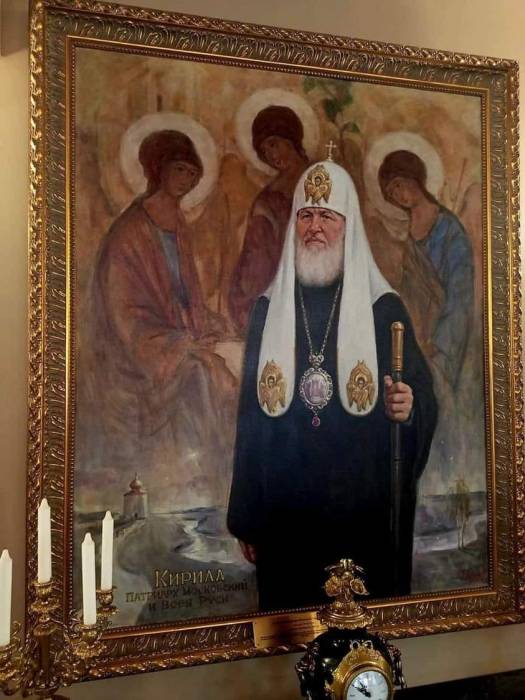According to an exit poll, the opposition has emerged as the winners of the Polish election. If the vote count validates this outcome, it would signify a significant shift in direction following a fiercely contested election campaign.
WARSAW – The recent general election in Poland suggests that the opposition parties have gained a significant victory, which could bring about a substantial change in the country’s political landscape, as well as have implications for the European Union. The current government, led by the Law and Justice (PiS) party, has been at odds with Brussels for eight years, facing accusations of undermining democratic principles. The opposition’s win could signal a shift in Poland’s relationship with the EU and potentially alter the political dynamics within the bloc.
On Monday afternoon, a final exit poll was published that includes the early vote count. The poll reveals that PiS received 36.1 percent of the support, followed by the centrist Civic Coalition with 31 percent, the center-right Third Way with 14 percent, the Left with 8.6 percent, and the far-right Confederation with 6.8 percent. In the previous year of 2019, PiS had won 43.6 percent of the votes. IPSOS conducted the poll, which was then shared with Poland’s primary television networks.
Despite the Law and Justice party’s initial success in gaining support, their victory can be seen as a hollow one since the three main opposing parties would collectively hold the majority of seats in the 460-member parliament.
According to the exit poll, the voter participation rate was 72.9 percent, setting a new record.
The ruling party utilized the government’s resources to bolster its chances of success, and state media, which is aligned with the ruling party, provided strong support. However, the party faced numerous scandals, including allegations of corruption and the sale of visas for bribes. Additionally, the party’s leadership was marred by eight years of tensions and conflicts with society, including disputes over abortion, the rule of law, grain imports from Ukraine, and strained relations with the EU, which has withheld billions of dollars in funding due to concerns over the rule of law. These factors contributed to a decline in support for the ruling party.
Despite the eleventh-hour introduction of a controversial referendum with multiple loaded questions aimed at discrediting the opposition, the PiS party’s supporters remained unenthusiastic, resulting in an insufficient turnout to legitimize the vote.
It appears that PiS may not win enough seats to have a majority in parliament, even if it teams up with Confederation, which has stated it will not form a coalition with Law and Justice. The remaining three parties have promised to collaborate in order to remove PiS from power.
The final exit poll indicates that Law and Justice is projected to obtain 196 seats, while Civic Coalition is expected to secure 158 seats. Third Way is estimated to win 61 seats, followed by the Left with 30 seats, and Confederation with 15 seats.
The opposition parties, comprising three prominent groups, would hold a combined total of 249 seats in the parliament, while the ruling PiS party and its Confederation ally would have 211 seats.
The tally of votes is anticipated to be concluded and announced by the morning of the following Tuesday.
Surprising Outcome
Jarosław Kazcyński, leader of PiS, considered the outcome a success for his party, but acknowledged the uncertainty regarding its impact on their tenure in government. He expressed hope that they would be able to translate this achievement into another term in office, while also emphasizing their commitment to advancing their agenda, whether they remain in power or move into opposition.
He emphasized that his party is committed to seeing its program through to completion.
The outcome brought great enthusiasm to Donald Tusk, the head of the Civic Coalition.
“I have never been so happy in my life with this supposed second place, Poland won, democracy won. We removed them from power,” said ex-prime minister and European Council president, played a pivotal role in bolstering the opposition’s aspirations upon my reentry into Polish politics in 2021.
“We will create a good new democratic government with our partners,” he said, denouncing the past eight years of “evil.”
The opposition pledged to restore and strengthen relations with the European Union.
Robert Biedroń, a prominent figure of the Left, announced that Poland will be rejoining Europe on October 15th.
After the vote count is completed, President Andrzej Duda will be responsible for the next step. He has indicated that it is customary for presidents to select a member from the largest party to be nominated as the prime minister, allowing them the initial opportunity to assemble a government.
Despite the potential partnership with Confederation, Law and Justice (PiS) is unlikely to secure enough seats in parliament to attain a majority, according to Sean Gallup/Getty Images. In such a scenario, the president’s chosen candidate would have two weeks to form a government and seek a parliamentary vote of confidence. If unsuccessful, the parliament would then have the opportunity to nominate a prime minister.
Poland’s recent election was characterized by an exceptionally contentious and divisive campaign season, one that stands out as one of the most acrimonious in the country’s history of democratic politics.
Kaczyński portrayed the opposition as a significant danger to the country’s existence. He alleged that Tusk was colluding with Berlin and Brussels to undermine Poland’s autonomy and allow an influx of migrants from Muslim nations.
The criticism suggests that if PiS is re-elected for a third term, it would solidify their grip on power and steer Poland towards an authoritarian system, similar to Hungary’s, where the government has considerable influence over the judiciary, media, and state-owned enterprises, thereby undermining Poland’s democratic foundations.
“We will be keeping an eye on these elections throughout the night,” Tusk said. “As you know, tens of thousands of people are sitting in the precincts. They are watching, no one will steal these elections from us anymore. We will guard every vote.” Tusk stressed that every vote will be safeguarded, and that the organization will not allow any attempts to manipulate the outcome.














